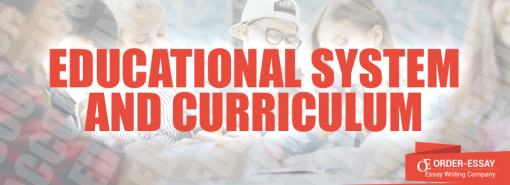
Introduction
Explaining the value of education to an individual is simple. Actually, the very reason why we can communicate with each other freely is due to education. Education has made the survival of human beings easier with advancements in every aspect of human life. Education controls how human beings work, think and make decisions. It is possible for a person to make a different identity through education. It is also important in provision of basic needs such as food, shelter and clothing. In the last century, education has actually become one of the basic needs. The Millennium Development Goal number one aims at ensuring universal primary education for all by 2015 (Haugen & Musser, 2009). This means that the world has realized that education is the most important aspect for human existence. It will be compulsory for every individual to have at least some education in the next two decades to ensure basic survival and communication.
One of the basic changes that education instills on an individual is the recognition of human desires and emotions and the ability to control them. I joined school with a perspective of communal undertaking in life. I did know that life has an essence of individuality and competition. Education changed my attitude towards life. It made me realize the existence of differing desires and emotions of each individual (Long, 2000). It also gave me a chance to try out different actions towards the control of these desires and emotions in educational institutions before it was too late to try them out in life. The chance to study gave me an opportunity to know my true self, my strengths and weaknesses, emotions and life realities. It made me realize how to improve individual character; one must carry out an intense observation of the environment and the society to determine how to handle complex issues. These changes made me have a holistic approach towards life and eliminated individualism and selfishness (Gibson, 1967).
Education is the most important tool for personal formulation. Human training is incomplete without education. The human race is able to communicate regardless of language and geographical barriers. It also assists in receiving information from the past, appreciating the present and planning for the future. Education assists in changing the overall human race to share common beliefs and practices (Bruner, 1971). People of Africa, Asia, Europe, Australia and the Americas have all changed to become the people of the world regardless of their past differences in education. Education has eliminated the domination of some people over others and created a way to level the playing field in life. It is people’s own choice to determine their own lives and achievements through education. These include getting jobs, being efficient, learning different languages and appreciate cultures and religions. One can see positive changes of education globally in an international summit where people from different countries seem to come from the same family. The situation would be different if completely illiterate people were to attend the summit (Smith, 1970).
Conclusion
A person can have material wealth and high levels of spiritual and moral appreciation, but all this can be useless without education. Education changes an individual to have a meaningful and holistic outlook towards life. Individuals might be different, but education eliminates these differences to make them look alike. It enhances efficiency, completeness and broadens the mind (Spencer, 1963). Knowledge leads to efficiency, which further leads to individual wholeness. Education also trains the mind to react to different situations in life. However, the human race cannot get all these benefits with an ineffective education system. Inappropriate education can lead to the state of submissiveness, thoughtlessness, emotionless and brainwash. Therefore, the existing stakeholders should ensure that they put in place the education system that is free from bias and which gives individuals a chance to increase their knowledge without barriers or negative influence.











